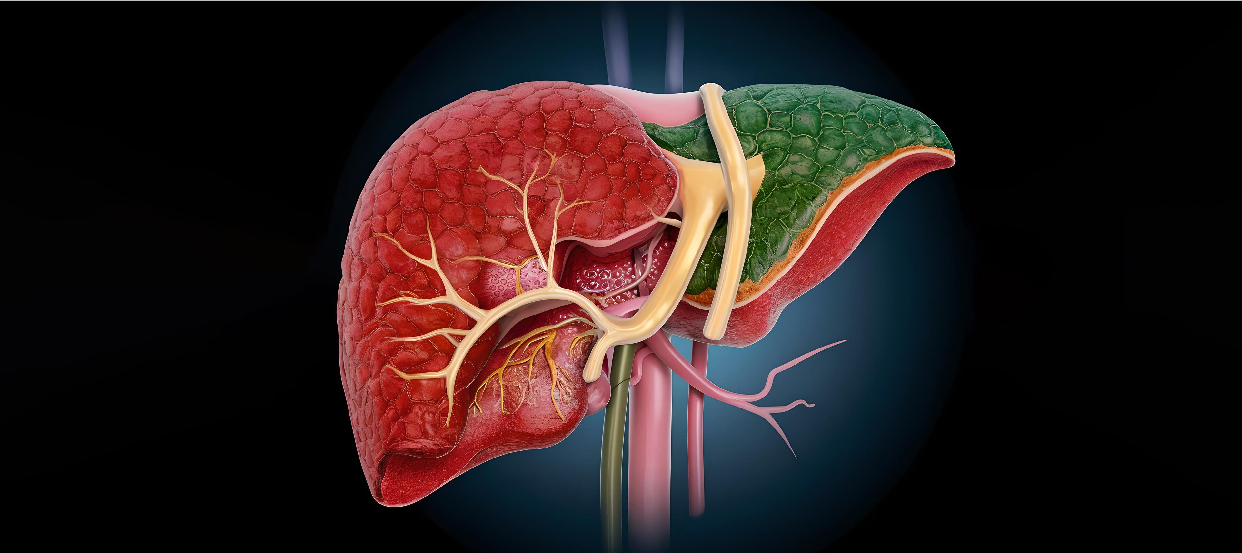
Liver cancer is a dangerous type of cancer that develops in the liver which is an important internal organ in the human body. That is why the timely diagnosis of liver cancer is very important. Some of the common possible indicators that one may wish to be acquainted with have been described above, though it’s critical to underscore that there is no specific primary symptom, as the signs usually manifest gradually. This blog will focus on the details of liver cancer, its signs, and how crucial early diagnosis is.
The liver is a large vital gland situated in the upper right quadrant of the abdominal cavity. It is important for numerous vital body processes, such as:
Liver cancer or hepatic carcinoma refers to the development of malignant growths in tissues of the liver. It can be primary where the cancer begins in the liver or secondary if it has spread to the liver from a different part of the body.
Many liver cancer patients experience no symptoms in the early stages of the disease. As the cancer progresses, symptoms may include:
As stated above, there is no one typical indication that the patient has liver cancer. Symptoms are usually not specific and occur gradually; sometimes, these signs indicate other liver ailments. However, tiredness, unexplained weight loss, and change of appetite especially in the abdomen should warrant a doctor’s attention especially if the person is a candidate for liver cancer.
Liver cancer risk can be raised by a number of variables, such as
Treatment for liver cancer depends on several factors, including the type and stage of the cancer, as well as the overall health of the patient. Options may include:
Liver cancer is a serious condition, but early detection and appropriate treatment can significantly improve outcomes. While there may not be a definitive "first sign" of liver cancer, being aware of potential symptoms and risk factors is crucial. Regular check-ups, especially for those at high risk, are essential for early detection and timely intervention. If you experience any persistent or concerning symptoms, consult with the Dr. Abhishek Yadav, one of the best liver specialist doctor in Pune for proper evaluation.
Q1: What is the function of the liver?
A: The liver is an important organ found in the upper right abdomen. Its functions include filtering blood, converting food into energy, removing toxins, producing bile for digestion, and storing essential nutrients.
Q2: What is liver cancer?
A: Liver cancer is the abnormal growth of cells in the liver. It can start in the liver (primary) or spread from another part of the body (secondary).
Q3: What are the signs and symptoms of liver cancer?
A: Early stages often have no symptoms. As it progresses, symptoms may include abdominal pain, loss of appetite, weight loss, fatigue, nausea, jaundice, swelling, dark urine, and clay-colored stools.
Q4: Is there a specific first sign of liver cancer?
A: No, there's no definitive first sign. Symptoms often develop gradually and can mimic other liver diseases. Persistent fatigue, unexplained weight loss, and abdominal pain warrant medical attention, especially if you have risk factors.
Q5: Who is at risk for liver cancer?
A: People with hepatitis B or C, cirrhosis, heavy alcohol use, obesity, type 2 diabetes, exposure to toxins, and a family history are at higher risk.
Q6: How is liver cancer treated?
A: Treatment depends on the cancer's type, stage, and overall health. Options include surgery, chemotherapy, radiation, liver transplant, and targeted therapy.
Q7: Can liver cancer be prevented?
A: While not always preventable, reducing risk factors like excessive alcohol consumption, maintaining a healthy weight, and getting vaccinated for hepatitis B can help.
Q8: When should I see a doctor about liver concerns?
A: If you experience persistent or concerning symptoms related to your liver, such as fatigue, abdominal pain, or jaundice, consult a healthcare provider.